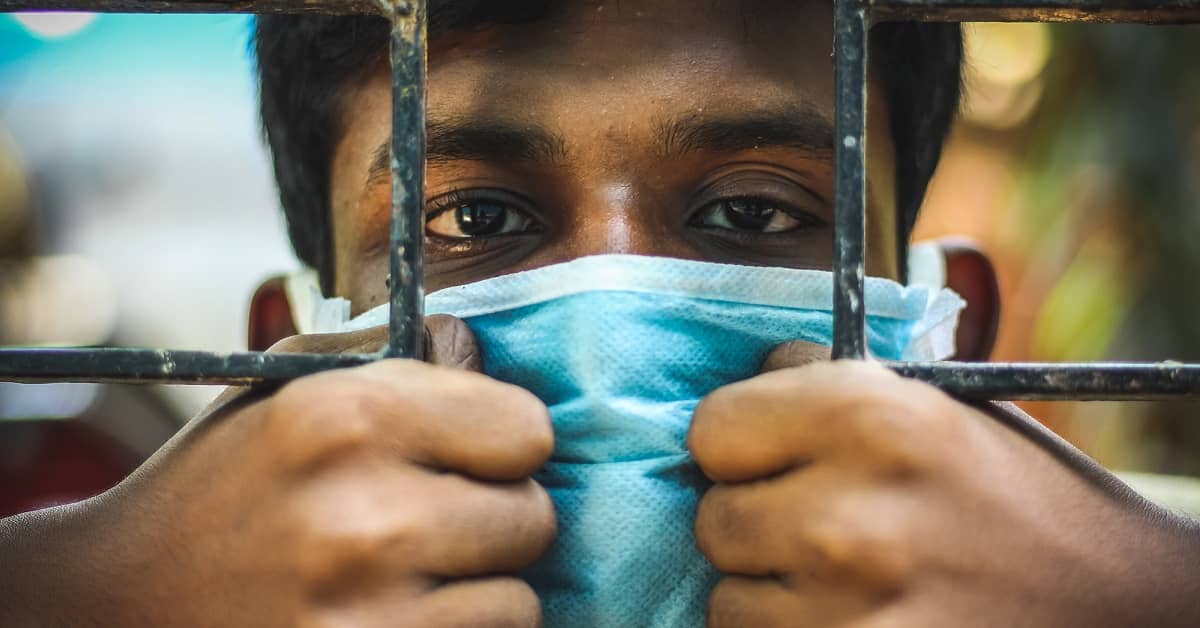
Coronavirus Lockdown and Mental Meltdowns
Dr. Hassam believes as many as one quarter of us could suffer some form of PTSD because of the coronavirus pandemic. The virus has caused so much disruption to our lives on so many levels, "it's no surprise," he writes, "that we have already seen a soaring increase in levels of depression, anxiety, addiction and abuse." Anecdotally, several people have confided in me that they’re not sleeping as well as they used to. A typical symptom is waking up in the middle of the night and being unable to get back to sleep. That’s a classic symptom of anxiety. When people begin to struggle with their mental health, they are advised to build resilience by connecting with family and friends, going to the gym, volunteering, meditating, or taking a vacation. Dr. Hassam fears that because "much of this has become either illegal or almost impossible" under the lockdown, "millions of otherwise mentally resilient individuals are silently drifting into a mental health pandemic, the impact of which cannot be underestimated." Dr. Hassam is not alone in his fears. Yuval Nenam, a trauma expert and professor of psychology at Columbia University, said "the scale of this outbreak as a traumatic event is almost beyond comprehension." Columbia is in New York City, the hardest hit region of the country. And Dr. Elana Newman, a trauma research specialist, describes the pending crisis as "a mass community disaster."Strategies for Surviving the Lockdown
While it's natural to feel anxious right now, there are proven and proactive ways to get through this. Denise Sloan, a professor of psychiatry at Boston University and associate director of the National Center for PTSD, draws our attention to an important thing to remember: the vast majority of people recover from a life-threatening event and never meet the criteria for PTSD. I would add that even most combat veterans don’t suffer from it. So, let’s not be carried away by fear of being afraid. Prof. Sloan’s advice is to trust we will recover because this optimism and hope increases the chances of doing so. We should also focus on memories of past recoveries from stressful events as a reminder of our inner strength. Dr. Edna Foa, a professor of psychiatry at the University of Pennsylvania, suggests finding ways to distract ourselves, such as playing video games and adding positive activities to our routine -- things we would normally do when feeling optimistic.Accentuate the Positive
Gratitude is also something we can practice. We all have so many things and people in our lives to be grateful for. Take notice, appreciate and give thanks. Feeling connected to others protects us against PTSD. "People need to talk to each other," said Dr. Foa, "especially if you are seeing horrible things." She also recommends participating in group activities like a fitness class or mindfulness talk, even if this can only be done online at the moment. It's important to move away from any negative, self-blaming thoughts and criticism. You can do this by being self-aware and by simply questioning your thoughts. Ask yourself, "Is this helpful?" If it’s not, then let go of that line of thinking. Cut yourself some slack and also let go of judging others. This will relieve stress and reduce feelings of loneliness. Ruminating – dwelling on negative thoughts – is another risk factor for PTSD. One way to stop replaying events over and over is to put your concerns on paper. Expressive writing offers reflection rather than rumination. Another technique is to engage in a mentally absorbing activity like solving crosswords. It's important to create a balance between the need to accept difficult feelings and face our fears while also bolstering ourselves emotionally. You can achieve a sense of control in unpredictable times by focusing on what you value most. This provides a sense of purpose and lays the groundwork for increasing physical strength and emotional recovery. Those who feel they need additional help and would prefer the support of a health professional, but don't know where to start, should visit https://www.mentalhealth.gov/get-help/immediate-help.- https://www.independent.co.uk/voices/coronavirus-lockdown-mental-health-ptsd-doctor- a9520721.html
- https://www.cnbc.com/2020/03/27/coronavirus-pandemic-could-inflict-long-lasting-emotional- trauma-ptsd.html
- https://www.nytimes.com/2020/05/20/smarter-living/coronavirus-coping-ptsd-mental- health.html?smid=nytcore-ios-share
